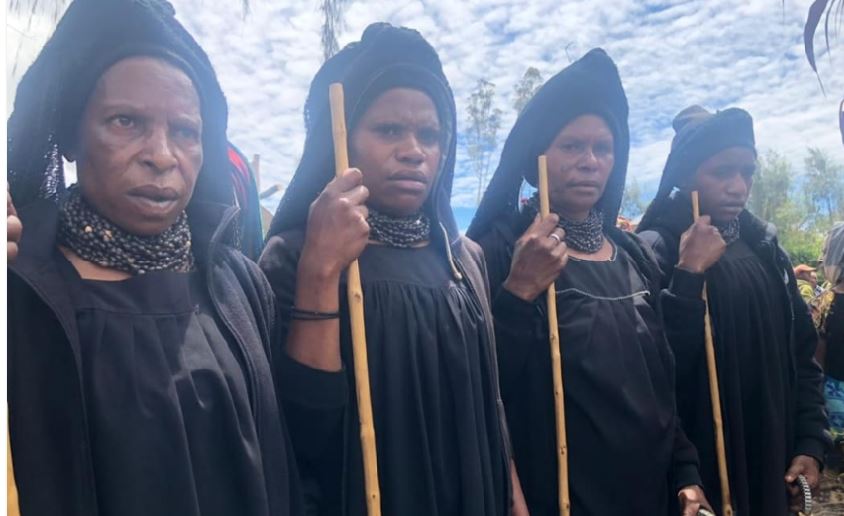Watchdog wants abusers of women to face justice system
Monday 16 January 2023 | Written by RNZ | Published in Papua New Guinea, Regional

Highlands women attend a funeral for a victim of a sorcery accusation-related attack. Photo: Supplied/ 23011513
A rights group wants to see the Papua New Guinea government make real progress in dealing with violence against women, writes Don Wiseman, RNZ Pacific Senior Journalist.
Human Rights Watch, which released its 2023 World Report last week, said PNG remains one of the most dangerous places in the world for females, with weak law enforcement fostering a culture of impunity.
It said more than 1.5 million people experience gender-based violence each year.
The group's Asia director Elaine Pearson said laws designed to protect women and children are rarely enforced.
“We have seen some movement in the PNG parliament to address the issues of violence against women, but frankly we need to see more than political will, we actually need to see perpetrators of these abuses, who've engaged in domestic violence, that has sometimes resulted in the killing of women in Papua New Guinea, to be held to account.
“And that means prosecutions and that means convictions,” she said.
Human Rights Watch also said initiatives such as the Family Sexual and Violence Units within the police force remain limited, while the lack of services for survivors of gender-based violence compounds the problem.
In February 2022, parliament passed legislation to strengthen criminal penalties for 'sorcery'-related violence, which the group said continues.
Human Rights Watch said that last July, following the death of a prominent businessman, nine women in Enga Province were accused of "sorcery" by members of the businessman's tribe and were splashed with petrol, burned, and assaulted with hot iron rods.
“Police rescued five of the women, but assailants killed four,” it said.
“Perpetrators of ‘sorcery’-related violence are rarely prosecuted. At time of writing, it appeared that no arrests had been made in the case, although the police commander said key suspects would be arrested soon.”
The organisation also pointed that PNG has one of the highest maternal mortality rates in the world with more than 2000 women and girls dying in childbirth each year.
It said these deaths are largely preventable but the risk of maternal death is increased by limited access to hospitals, with more than 80 percent of the population living rurally.














































